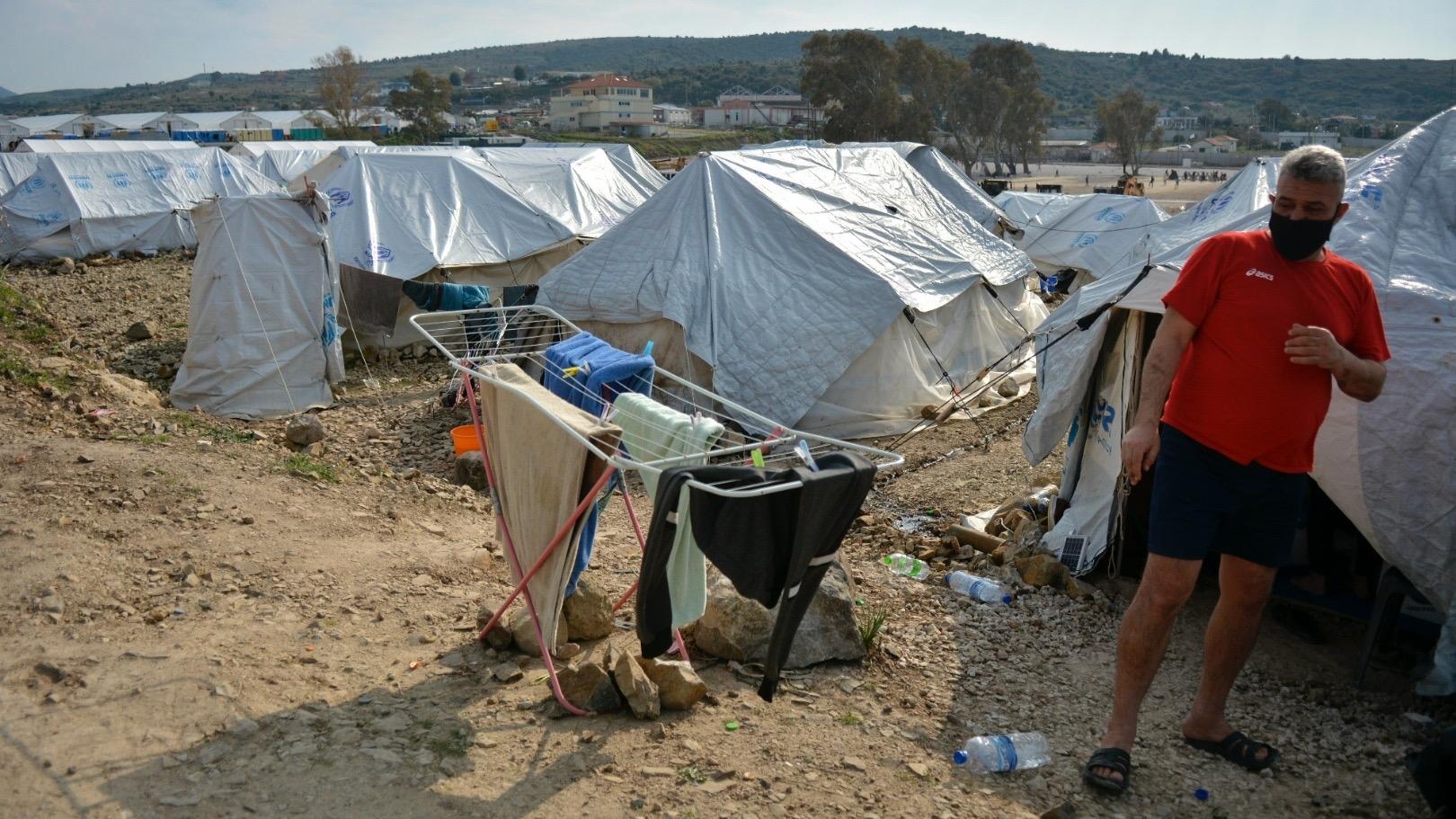European and Greek officials planning to build new migrant reception facilities on Greek Aegean Islands are facing a fresh wave of local resistance.
During a visit to Lesbos on Monday, European Commissioner for Home Affairs Ylva Johansson announced more than 270 million euros in funding will go toward building new reception centers on Lesbos, Chios, Samos and other islands.
Related: Greek police roll out new ‘smart’ devices with facial recognition
A group of residents gathered in the port city of Mytilene to protest Johansson’s visit and plans for a permanent facility on the island.
They waved Greek flags and held banners that said: “No structures on the island. Europe must take responsibility.” Some chanted: “Greek islands will not be turned to prisons,” while others sang the Greek national anthem.
“Enough is enough,” said Nikos Karasavvas, a local resident and member of the regional council.
He said it was time for other European countries to bear the burden of handling migrants trying to reach Europe.
Michalis Sikelis, a mechanic whose family has lived on the island for generations, said he also opposed the plan by Greek and EU officials.
Related: EU to overhaul migration policy
“They’ve turned my island into a prison of souls.”
“They’ve turned my island into a prison of souls,” said Sikelis, pointing to inhumane conditions at existing migrant sites on Lesbos.
Johansson’s visit to Samos island earlier in the day was also met with local resistance.
Related: Migrants displaced by Lesbos fire say conditions at new camp are inhumane
Currently, almost all asylum-seekers on the island are being held in a temporary campsite that the Greek government erected in September after a fire destroyed the Moria refugee camp where thousands were living in overcrowded and unsanitary conditions.
The conditions at the temporary campsite, which is often referred to as “Moria 2.0,” have been widely condemned by human rights groups and nongovernmental organizations.
“We feel that we’re in jail.”
“We feel that we’re in jail,” said Ahmad, an Afghan asylum-seeker who has been on the island with his wife and two kids for nearly two years. He requested that only his first name be used.
A family is currently living in a tent in the temporary campsite on Lesbos where Ahmad says the conditions are difficult: tents are shared; running water is scarce; and tents flood when it rains.
At a press conference on Monday, Johansson said a new, permanent, closed reception facility on Lesbos would ensure “adequate living conditions” not just for migrants but locals, as well.
Related: Migrants displaced by fire at Moria camp on Lesbos: ‘Nobody’s life is safe here’
Johansson was joined by Greek Migration Minister Notis Mitarakis. Neither official was able to give a specific timeline for when the new camp would be completed.
Mitarakis explained that the site where the camp will be built was chosen because of its remote location.
Organizations that work with asylum-seekers on Lesbos and other islands have criticized plans for new migrant facilities on the Greek islands.
Migrants themselves are not against the plan.
“We don’t want another camp,” Ahmad said. “[We] just want to leave this island.
